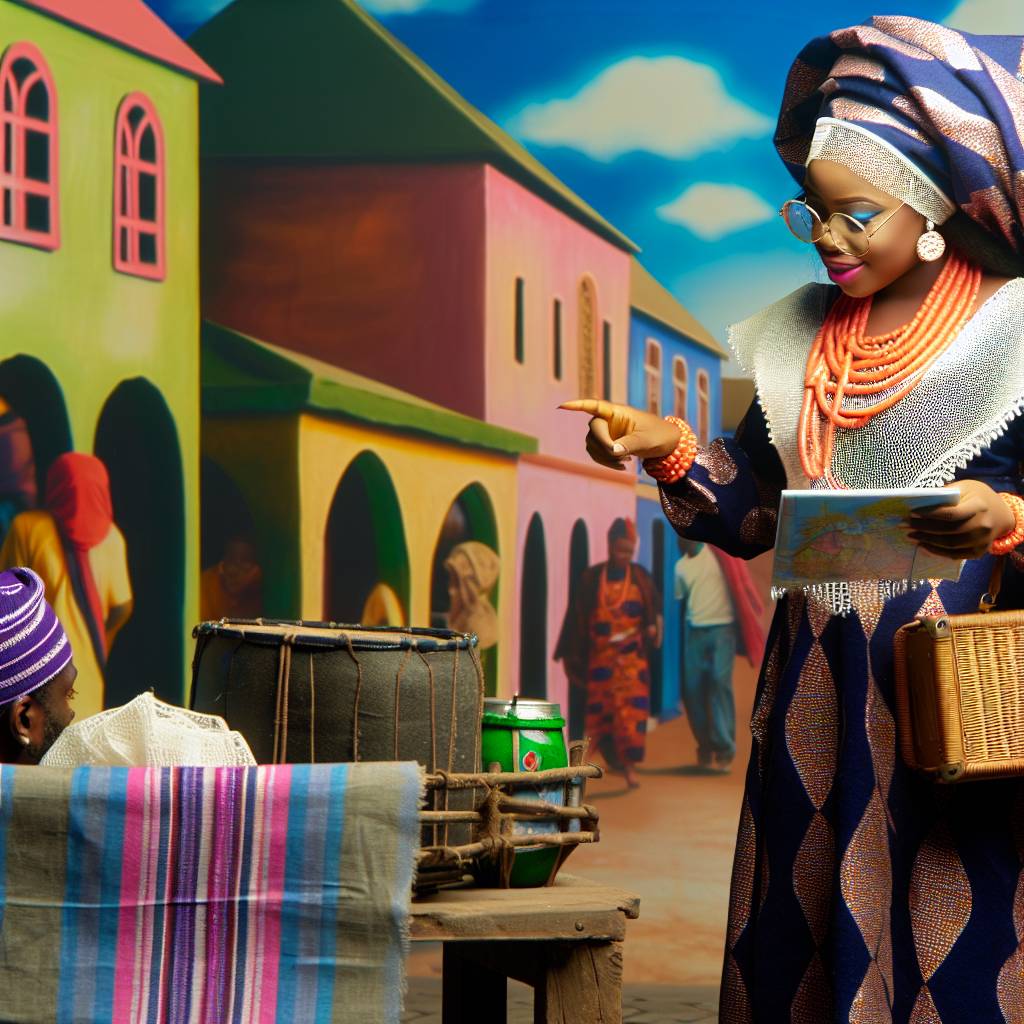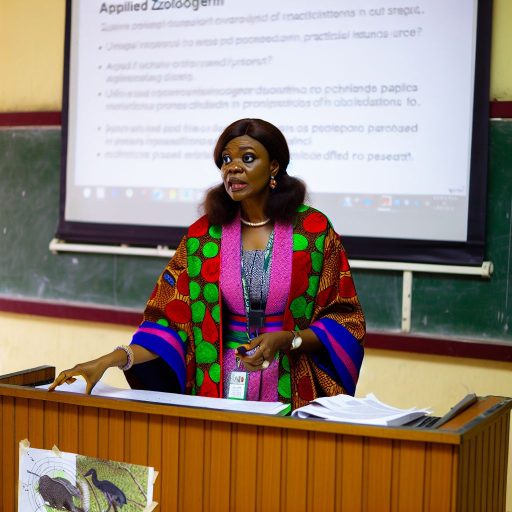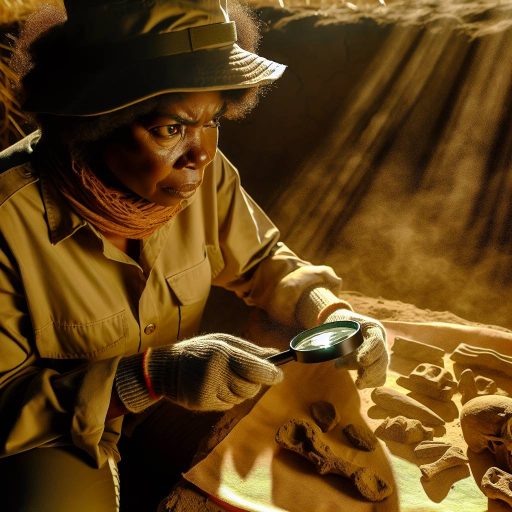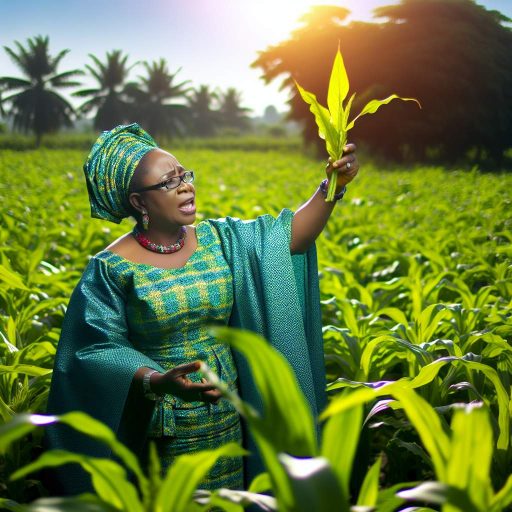Introduction
Brief Explanation of Ethnographic Studies
Ethnographic studies involve immersive research to understand societal cultures and practices.
Importance of Studying Key Nigerian Communities
Exploring key Nigerian communities provides insights into diverse cultures, traditions, and social structures in Africa.
Overview of Ethnographic Studies in Nigeria
- Definition of ethnography
- Brief history of ethnographic studies in Nigeria
- Significance of ethnographic research in understanding Nigerian communities
Ethnography is a research method used in anthropology to study and understand cultures and societies by immersing the researcher in the community being studied.
It involves direct participation and observation of cultural practices, beliefs, and behaviors.
When looking at the history of ethnographic studies in Nigeria, it is essential to recognize the pioneering work of scholars such as Professor Ekeh and Professor Ottenberg.
They conducted groundbreaking research in various Nigerian communities.
Their work laid the foundation for further exploration and understanding of Nigerian cultures.
Ethnographic research plays a crucial role in understanding Nigerian communities.
It provides insights into their social structures, belief systems, and daily life practices.
By engaging with community members and observing their behaviors firsthand, researchers can gain a more profound understanding of the cultural nuances.
Below are some of the key Nigerian communities that have been explored through ethnographic research:
Key Nigerian Communities Explored
Throughout the years, numerous Nigerian communities have been the focus of ethnographic studies to shed light on their unique cultural practices and traditions.
Igbo Community
The Igbo community, located primarily in the southeastern part of Nigeria, has been a subject of extensive ethnographic research.
Scholars have documented various aspects of Igbo culture, including their traditional religion, social organization, and kinship systems.
One notable study conducted in the Igbo community focused on the masquerade traditions and performances.
These play a significant role in Igbo cultural ceremonies and rituals.
By participating in these rituals and observing the intricate details of the masquerade costumes and dances, researchers gained valuable insights.
These insights reveal the spiritual beliefs and cultural practices of the Igbo people.
Yoruba Community
The Yoruba community, located in the southwestern part of Nigeria, has also been a subject of ethnographic research.
Scholars have documented the Yoruba’s mythologies, art forms, and religious practices.
One significant ethnographic study conducted in the Yoruba community focused on traditional Yoruba festivals.
These festivals play a role in preserving cultural identity and heritage.
By engaging with community members during these festivals, researchers gained insights into the Yoruba’s spiritual beliefs and social structures.
Hausa Community
The Hausa community, located in the northern part of Nigeria, has been a subject of ethnographic studies.
These studies explore their unique cultural practices and traditions.
Scholars have documented Hausa folklore, music, and traditional healing practices.
One notable ethnographic study conducted in the Hausa community focused on traditional healers.
This study examined how these healers provide healthcare services and spiritual guidance.
By observing the practices of these healers, researchers gained insights into the integration of traditional medicine and spiritual beliefs.
Ethnographic studies play a vital role in exploring and understanding cultural diversity within Nigerian communities.
By immersing researchers in the everyday lives of community members, ethnography provides valuable insights.
These insights contribute to a deeper appreciation and understanding of Nigeria’s rich cultural heritage.
Yoruba Community: An In-depth Exploration
The Yoruba people are an ethnic group predominantly found in Nigeria.
They have a rich cultural heritage that dates back centuries.
They are known for their art, music, dance, and vibrant traditions that have been passed down through generations.
Background Information on the Yoruba People
- The Yoruba people are one of the largest ethnic groups in Nigeria, with a population of over 40 million.
- They primarily inhabit the southwestern part of the country, including states like Oyo, Lagos, Ogun, and Osun.
Traditional Practices, Beliefs, and Customs
- The Yoruba people practice a mix of Christianity, Islam, and traditional Yoruba religion known as Ifa.
- They believe in various deities and spirits, and often consult priests known as Babalawos for spiritual guidance.
- Traditional Yoruba ceremonies such as weddings, naming ceremonies, and festivals play a significant role in their social life.
Notable Cultural Artifacts and Practices
- Yoruba art is famous for its intricate beadwork, wood carvings, and brass sculptures that depict their gods and legends.
- Their music and dance are vibrant and energetic, with drumming and chanting being essential components of their cultural expressions.
Key Findings from Ethnographic Studies within the Yoruba Community
- Researchers conducting ethnographic studies within the Yoruba community have discovered the importance of oral tradition in preserving their cultural heritage.
- They have also found that the Yoruba people have a strong sense of communal living, with extended families playing a crucial role in their social structure.
- Furthermore, the Yoruba’s reverence for their ancestors and the belief in the power of ancestral spirits is a central aspect of their worldview.
- Ethnographic studies have highlighted the resilience and vibrancy of Yoruba culture, despite modern challenges and influences.
Find Out More: Marine Biology: Nigerian Coastal Pollution Issues
Igbo Community: Uncovering Cultural Traditions
The Igbo ethnic group is one of the largest and most influential ethnic groups in Nigeria.
Introduction to the Igbo Ethnic Group
The Igbo people, also referred to as the Ibo, are primarily located in southeastern Nigeria.
They are known for their vibrant culture, language, and strong sense of community.
Transform Your Career with Expert Guidance
Get personalized mentorship consulting that’s tailored to your unique path. Our expert advice is actionable and exclusive.
Get StartedUnique Cultural Traditions and Practices
- Igbo culture places a strong emphasis on family and community values, with extended families playing a central role in social structure.
- Traditional Igbo society is patriarchal, with men holding positions of authority and responsibility within the family and community.
- Igbo traditional religion, known as Odinani, is centered around worship of ancestral spirits and deities, with rituals and ceremonies playing a significant role in daily life.
- Igbo art and music are highly valued, with traditional dances, masquerades, and storytelling serving as important forms of cultural expression.
Impact of Globalization on Igbo Culture
Globalization has had a profound impact on Igbo culture, leading to changes in traditional practices and beliefs.
- The influx of Western ideas and practices has challenged traditional Igbo values and customs, resulting in a shift towards more modern and Westernized lifestyles.
- Technological advancements and increased connectivity have also influenced Igbo culture, with social media and global communication platforms shaping the way young Igbo people interact and express themselves.
- Urbanization and migration have further contributed to the erosion of traditional Igbo culture, as younger generations move to urban centers in search of better opportunities.
Insights from Ethnographic Studies Focusing on the Igbo Community
Through ethnographic studies focusing on the Igbo community, researchers have gained valuable insights into the complexities of Igbo culture and identity.
- Researchers have documented the role of traditional Igbo institutions, such as the village assembly and age-grade system, in maintaining social order and cohesion.
- Studies have also highlighted the resilience of Igbo cultural practices in the face of globalization, with many communities actively working to preserve and promote their cultural heritage.
- Ethnographic research has shed light on the diverse ways in which Igbo people navigate the tensions between tradition and modernity, offering a nuanced understanding of cultural change and continuity.
Find Out More: Microbiology Lab Safety Protocols in Nigeria
Exploring the Hausa Community: Unraveling Social Structures
Within Nigeria, the Hausa people form one of the largest ethnic groups.
They are known for their rich cultural heritage and vibrant community life.
Let’s delve into the key aspects of the Hausa community.
Overview of the Hausa People
The Hausa people are predominantly found in Northern Nigeria.
They have a population spread across various states such as Kano, Kaduna, and Sokoto.
They are known for their history of trade, agriculture, and strong Islamic influence.
Social Structures and Hierarchies within the Community
One of the defining features of the Hausa community is its social structure.
It is based on a hierarchical system.
The society is stratified into different classes.
There are clear distinctions between the ruling elite, noble families, and commoners.
Traditionally, the Hausa society is organized into the following hierarchical groups:
- Ruling Class: Consisting of emirs, sultans, and traditional leaders who govern various regions.
- Noble Families: Elite families with a history of wealth and influence in the community.
- Merchants and Traders: Individuals engaged in commerce and business activities.
- Artisans and Craftsmen: Skilled workers responsible for producing traditional handicrafts.
- Commoners: Everyday people who form the majority of the population and engage in various occupations.
Religious Practices and Beliefs
Religion plays a significant role in the lives of the Hausa people.
Islam is the dominant faith among the Hausa individuals.
The majority adhere to Sunni Islamic teachings and practices in their daily lives.
Key religious practices and beliefs within the Hausa community include:
- Prayer: Daily prayers are an integral part of Hausa religious life.
- Fasting: Observance of the holy month of Ramadan, during which Muslims abstain from food and drink from dawn to dusk.
- Pilgrimage: Participation in the Hajj pilgrimage to Mecca is a significant religious obligation for Hausa Muslims.
- Islamic Festivals: Celebrations such as Eid al-Fitr and Eid al-Adha are observed with prayers, feasting, and community gatherings.
Insights from Ethnographic Studies on Hausa Culture
Ethnographic studies conducted within the Hausa community provide valuable insights.
Researchers explore various aspects of Hausa culture, including language, art, music, and social customs.
Some key findings from ethnographic studies on the Hausa community include:
- Language and Communication: The Hausa language serves as a unifying factor among community members.
- Art and Craftsmanship: Hausa artisans are known for their intricate weaving, leatherwork, and metalcraft.
- Music and Dance: Hausa music includes traditional drumming, storytelling, and ceremonial songs.
- Social Customs: Rituals such as naming ceremonies, weddings, and funerals play a significant role in maintaining social cohesion.
Discover More: Impact of Animal Biology on Nigerian Ecosystems

Background Information on the Fulani People
The Fulani people, also known as Fula or Fulbe, are one of the largest and most widely spread ethnic groups in West Africa.
They are known for their pastoral nomadism and have a strong presence in Nigeria, as well as other countries like Senegal, Mali, and Guinea.
Nomadic Lifestyle and Cultural Traditions
The Fulani are traditionally nomadic herders, moving their cattle across vast distances in search of grazing lands.
This lifestyle has shaped their cultural traditions, including their social structure, music, dance, and dress.
Relationship with Other Nigerian Communities
The Fulani have historically had complex relationships with other Nigerian communities.
They have often been seen as outsiders due to their nomadic lifestyle and different cultural practices.
However, they have also intermingled with other groups through trade and intermarriage.
Ethnographic Insights into Fulani Culture and Way of Life
In recent ethnographic studies, researchers have delved deep into Fulani culture and way of life to gain a better understanding of this unique community.
They have documented the Fulani’s intricate social systems, their intricate oral traditions, and their conflict resolution mechanisms.
Main Aspects of Fulani Culture
- Oral Tradition: The Fulani have a rich oral tradition, passing down history, poetry, and genealogy through storytelling.
- Social Structure: Fulani society is organized around a hierarchical structure, with roles defined by age, gender, and lineage.
- Conflict Resolution: The Fulani have developed intricate systems for resolving disputes, often through mediation and negotiation.
- Music and Dance: Music and dance play a significant role in Fulani culture, with traditional instruments like the xalam and drum used in celebrations and rituals.
- Dress: Fulani clothing is known for its colorful and intricate designs, reflecting the cultural identity and status of the wearer.
Challenges Facing the Fulani Community
- Land Disputes: As nomadic herders, the Fulani often face conflicts over land use and access to grazing areas.
- Security Concerns: The Fulani have been increasingly targeted by violence and insecurity, leading to displacement and loss of livelihoods.
- Marginalization: Due to their nomadic lifestyle, the Fulani are sometimes marginalized and discriminated against in Nigerian society.
- Economic Challenges: In a rapidly changing world, the traditional livelihoods of the Fulani are under threat, leading to economic hardship and uncertainty.
See Related Content: Environmental Applications of Geophysics in Nigeria
Nigerian Cultural Diversity
Our ethnographic studies have delved into key Nigerian communities.
We focused on the Igbo, Yoruba, and Hausa tribes.
Each community has unique cultural practices, beliefs, and traditions.
These elements are integral to their identity.
Understanding cultural diversity in Nigeria is crucial.
This understanding promotes unity and respect among different ethnic groups.
It allows us to appreciate the rich tapestry of traditions that make up the country.
There is great potential for future ethnographic research in Nigerian communities.
This research will further explore and document their way of life.
By continuing this work, we can gain a deeper understanding of Nigeria’s cultural heritage.
We can also contribute to the preservation of its diverse traditions.
Additional Resources
Engaging Nigerian Older Persons in Neighborhood Environment …
Local and Transnational Identity, Positionality and Knowledge …




